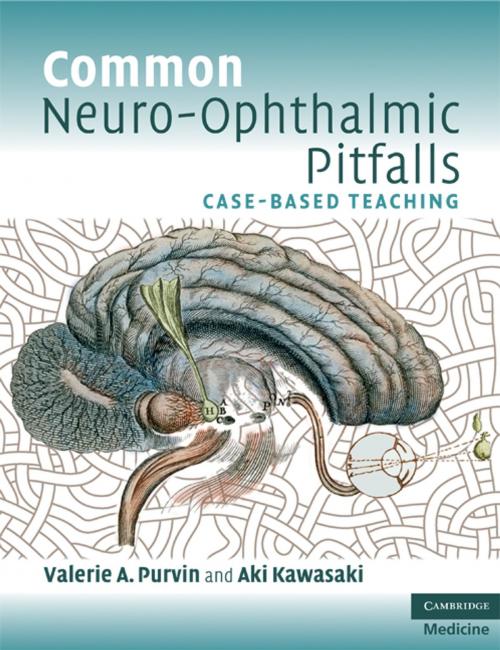Common Neuro-Ophthalmic Pitfalls
Case-Based Teaching
Nonfiction, Health & Well Being, Medical, Specialties, Internal Medicine, Neurology| Author: | Valerie A. Purvin, Aki Kawasaki | ISBN: | 9780511737473 |
| Publisher: | Cambridge University Press | Publication: | January 22, 2009 |
| Imprint: | Cambridge University Press | Language: | English |
| Author: | Valerie A. Purvin, Aki Kawasaki |
| ISBN: | 9780511737473 |
| Publisher: | Cambridge University Press |
| Publication: | January 22, 2009 |
| Imprint: | Cambridge University Press |
| Language: | English |
Using real-life cases describing patients with neuro-ophthalmic disorders, this book is a case-based teaching tool that bridges the gap between textbook information and everyday clinical practice. Each case illustrates a particular area of frequent diagnostic confusion, and highlights the specific clinical features that should point to the correct diagnosis. Focusing on errors in this way serves as motivation to the clinician to master the material so that 'pitfalls' can be avoided. The level of the case discussions assumes that the reader has some familiarity with basic neuroanatomy, physiology and disease process but each case discussion furnishes a brief review of such information, always with an emphasis on those features that are clinically relevant. The case-histories are succinct and amply illustrated, including motility and fundus photographs, visual fields and radiographic studies. The narrative is moved along with questions to the reader, making it easy to follow the logic of the cases.
Using real-life cases describing patients with neuro-ophthalmic disorders, this book is a case-based teaching tool that bridges the gap between textbook information and everyday clinical practice. Each case illustrates a particular area of frequent diagnostic confusion, and highlights the specific clinical features that should point to the correct diagnosis. Focusing on errors in this way serves as motivation to the clinician to master the material so that 'pitfalls' can be avoided. The level of the case discussions assumes that the reader has some familiarity with basic neuroanatomy, physiology and disease process but each case discussion furnishes a brief review of such information, always with an emphasis on those features that are clinically relevant. The case-histories are succinct and amply illustrated, including motility and fundus photographs, visual fields and radiographic studies. The narrative is moved along with questions to the reader, making it easy to follow the logic of the cases.















